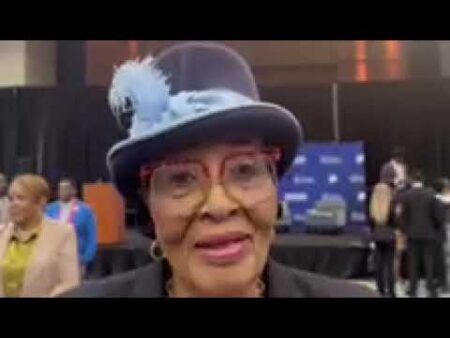Twenty years later, I still get chills when I think about the final line in Brett Neveu’s Eric LaRue, his drama about the aftermath of a school shooting, in which the mother of a teenage boy who killed three of his classmates tries to come to grips with the monstrous deed.
Apparently I’m not the only one who can’t get that story out of their head. Earlier this month, it was announced that Michael Shannon, Neveu’s friend and longtime collaborator and fellow ensemble member at A Red Orchid Theatre (where Eric LaRue made its world premiere under Ann Filmer’s direction in November 2002), is directing the film version, using Neveu’s own screenplay. It marks the feature directorial debut for Shannon, who has become internationally famous (and earned two Oscar nominations) since his own salad days at A Red Orchid (which he cofounded in 1993 with Guy Van Swearingen and Lawrence Grimm) and other Chicago companies.
Neveu says that his manager had been after him to write a screen version of Eric LaRue almost since he first wrote the play, in part because “unfortunately, this subject matter doesn’t seem to be disappearing.” Ironically, although Neveu was in Los Angeles from 2007-2011, it wasn’t until he returned to Chicago that the screenplay really came together. “I had a little window about five or six years ago to work on it, and it came out really quickly,” he says.
In 2018, Shannon was directing Neveu’s Traitor, his contemporary update of Henrik Ibsen’s An Enemy of the People, at Red Orchid. Neveu gave Shannon a copy of the Eric LaRue screenplay at the closing-night party.
“I give Mike nearly everything to read just to get some feedback,” says Neveu. “And it’s not like he tends to give me a ton of notes or anything like that. He just says that he loves it or he thinks it’s great or gives me a couple thoughts or something like that. And that’s kind of all I need in most cases. And so with [the screenplay] I was like, ‘Can you take a look at this and see if it’s anything?’ And then he did, and then like maybe three or four weeks later, he just texted me. He said, ‘Uh, I think I might wanna direct this.’ I was like, ‘What?’”
The original story in the play unfolds in four scenes, all involving Janice, Eric’s mother (memorably played at Red Orchid by longtime Chicago acting legend Kate Buddeke). In the first scene, she’s talking to her pastor. In the second, she’s with her husband, who has found solace in faith and keeps telling her, “Let Jesus into your heart.” In the third, her pastor has had the boneheaded idea to bring her together with the mothers of her son’s victims in an attempt to achieve some kind of reconciliation. Finally, in that harrowing last scene, Janice visits her son in prison and makes a confession that leads to that aforementioned last line. (I won’t quote it, because I don’t know if it will be in the film or not.)
It’s easy to peg the story as being solely about school shootings and America’s unending history of gun violence. But as with a lot of Neveu’s work, I found Eric LaRue to be more about the American obsession with “closure” in the wake of a tragedy. (Perhaps most recently, we saw that with GOP gubernatorial candidate Darren Bailey, who within hours of the Highland Park Fourth of July parade massacre, said, “Let’s pray for justice to prevail, and then let’s move on and let’s celebrate—celebrate the independence of this nation.”)
Neveu and I had talked about this aspect of his play before, when Eric LaRue played at the Royal Shakespeare Company in London in 2005 as part of their “Postcards From America” series. In our recent conversation, he recalled that Dominic Cooke, the associate director of the RSC, took Guardian critic Lyn Gardner to task in a letter to the editor. Gardner had unfavorably compared Neveu’s play to Lionel Shriver’s novel (later a 2011 film) We Need to Talk About Kevin. Cooke wrote, “Shriver uses the shooting narrative to explore mother-son relationships. Her approach is psychological; Neveu’s is sociological, showing how America’s therapy culture, trying to smooth away dark feelings, creates violence.” Throughout the play, Janice repeats that she doesn’t know how she’s “supposed to feel,” and the cack-handed attempts of her husband and pastor to smooth over the deep emotional wound left by her son’s actions only add to her own rage and sense of alienation.
Neveu describes it as “the culture of psychology around people wanting to fix things. ‘I’ll fix things for you. Everything’s gonna be OK. As long as we can get through this, it’s gonna be OK.’ We can’t necessarily fix things for people, especially something as big as murder. Or being ostracized.” He adds, “Let’s talk about what to do before any of these things happen. And that’s what hopefully people are talking about now.”
As for the film itself, Shannon’s long-standing relationship with writer-director Jeff Nichols (they’ve worked together on seven films, including Shotgun Stories, Mud, and Take Shelter) came in handy. Nichols is one of the executive producers, along with Sarah Green, another longtime Nichols collaborator. The film begins shooting in North Carolina later this summer; the original plan to film in Nichols’s home state of Arkansas was pulled when the U.S. Supreme Court overturned Roe v. Wade, meaning that Arkansas’s “trigger law” banning all abortions except to save the mother’s life went into effect. As of now, the cast hasn’t been announced.
Neveu says that rewriting the play to open it up for a film version was made easier by the fact that he’s been teaching screenwriting at Northwestern for several years.
“I was thinking about structure a lot on how to adapt a story. And then I was thinking about all of the obstacles that Janice faces from people, from actions, from sort of life in general, and what the basic wants and needs are for Janice. And I was also just thinking about the visual language for this story, and reaching back into my growing up in Newton, Iowa, and remembering a lot of things from growing up in that town, and the people that were there, and trying to set those locations for myself. I know it’s a bit cliché, but I wanted to make sure that the town was a character unto itself, too. There are places that Janice could go that are safe. There are places that Janice could go that are unsafe. And 95 percent of the places that she could go are unsafe, as a result of what happened with her son.”
Small-town midwestern life and loss is also part of Neveu’s next play at A Red Orchid—The Malignant Ampersands, opening in late September. (It’s his ninth piece to premiere with the company.) Partly devised as an homage (or as the press release puts it, “a very unofficial sequel”) to Orson Welles’s 1942 cinematic masterpiece, The Magnificent Ambersons (itself based on a 1918 Pulitzer Prize-winning novel by Booth Tarkington), the play follows the descendants of a once-wealthy family that is now plagued by misfortune.
Neveu notes that he and his wife and daughter “go to a lot of estate sales in these old houses and they look beautiful on the outside and you go in and it’s like a house that hasn’t changed inside since 1901. And you’re like, ‘What has been going on in here?’ There’s all of their stuff, like all of their wedding photos and bridal gowns and military uniforms and everything. Family pictures, paintings. Didn’t anybody want any of this? You think ‘Where is your family?’ And so it came from that and it also came from how as you age, there’s just a lot of illness in families these days—confronting a lot of cancer specifically. What happens when all that’s left is the disease, and everything else has been taken? Or has been given away or has been squandered?”
Update on Pay Equity Standards
In January, I reported on the unveiling of the Pay Equity Standards for theater companies created by the advocacy group On Our Team, which provided a path for companies to achieve certification in the areas of transparency, working conditions, and accountability.
On Monday, two Chicago companies announced that they were the first to meet the standards: 2nd Story and Collaboraction. Essentially, this means they can display the Pay Equity Standards badge, not unlike those used to highlight organic and fair-trade companies, which will hopefully lead to patrons finding out more about what fair practices in theater should look like—and perhaps using that information to help them make decisions about what theaters to support in the future.
It’s a first step toward what On Our Team and other organizations working on these issues hope will become more of an industry standard practice. In the press release, On Our Team noted, “The arts and culture industry added $919.7 billion to the nation’s GDP in 2019 and the industry includes 5.2 million workers with a total compensation of $447 million, according to a report by the NEA released in 2021. Yet, as a UNESCO study from 2019 titled Culture & Working Conditions for Artists stated, ‘the largest subsidy for the arts comes not from governments, patrons or the private sector, but from artists themselves in the form of unpaid or underpaid labour.’”
Did you know? The Reader is nonprofit. The Reader is member supported. You can help keep the Reader free for everyone—and get exclusive rewards—when you become a member. The Reader Revolution membership program is a sustainable way for you to support local, independent media.







